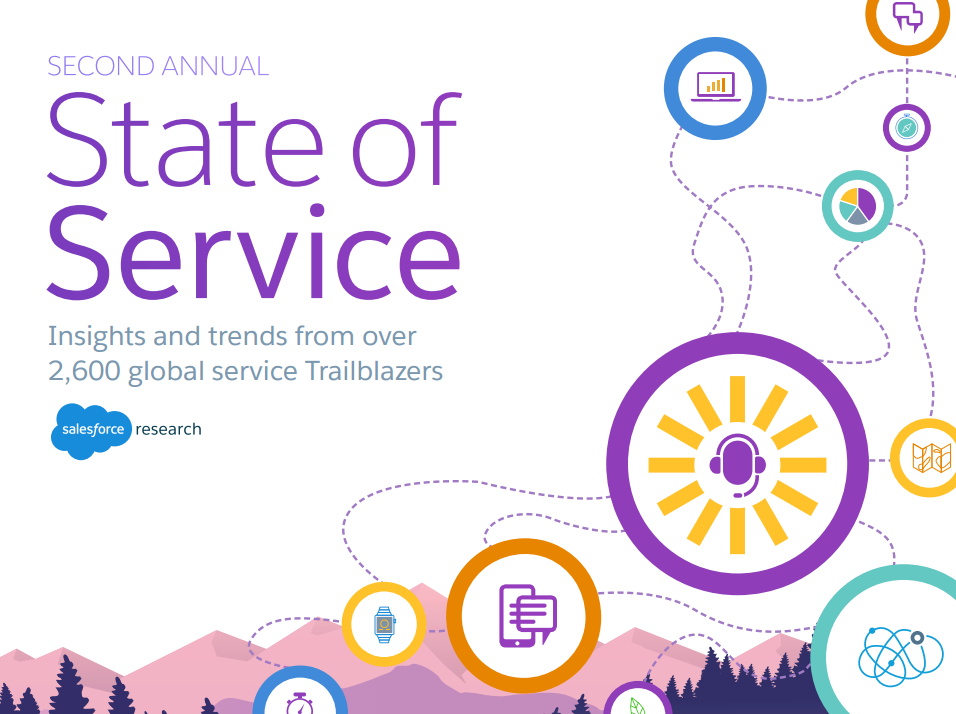 INFRA
INFRA
 INFRA
INFRA
 INFRA
INFRA
Sales has long been the biggest priority for many organizations, while customer service took a backseat, treated as a necessary evil and given limited resources.
But a new report from Salesforce.com Inc.’s research division suggests that mindset is changing, as companies realize that increased investments in customer service, aided by new technologies, can help to boost their bottom lines.
Salesforce’s second annual “State of Service” report, released Jan. 5, quizzed more than 2,600 customer service staff from across the world to find out how smart technologies are impacting service protocols and how service leaders are responding to heightened customer demands.
The report found that a growing number of organizations now see service as the primary vehicle to improve the customer experience as the balance of power shifts from sellers to buyers. These days, customer service is seen as a competitive differentiator that resonates across organizational lines, rather than a costly but necessary function.
“Customer experience has become the defining line between companies that grow and companies that fall behind,” said Adam Blitzer, executive vice president and general manager of sales and service clouds at Salesforce. “It is imperative for every company to prioritize the customer experience by empowering service agents to deliver personalized, intelligent and conversational service.”
The report that found there’s an overall sentiment that “everyone is in customer service,” with 78 percent of respondents saying they felt every employee needs to play their part. “Delivering an exceptional customer experience requires a unified front across company units —namely service, sales, and marketing,” the report said.
Still, organizations can do a lot more to shore up this “unified front,” the report says. The study found that 37 percent of firms do not have any formal processes in place for customer services teams to collaborate with sales.
Moreover, there’s a critical need for companies to improve intelligent service capabilities across their organizations. Just 37 percent of customer service teams indicated they’re excellent or above average at gathering insights across the entire customer lifecycle, which includes data and reporting from marketing, sales and support transactions. Meanwhile, the same percentage indicated they were good at performing “next-step analysis” to enable marketing, sales and support teams anticipate the needs of their customers and prioritize tasks.
Salesforce says this is important because customers are increasingly becoming more demanding, with 79 percent of consumers and 83 percent of business buyers saying it’s important they’re immediately routed to the agent most knowledgeable about their particular issue. Those that can’t do this are likely to suffer, as more than half of consumers indicated they would consider switching brands if companies don’t make an effort to personalize communications to them as an individual. Likewise, the report found that 68 percent of customer service teams agree that one bad experience can inflict more damage on a customer relationship than it could have done five years ago.
“Customers want to feel immediately understood, individually valued, and consistently recognized no matter the channel of engagement,” the report states.
The report argues that today’s “always-on” customer requires a swift response from customer service agents, with 60 percent of business buyers and 43 percent of consumers demanding immediate in-app support from the companies they do business with. In order to meet this demand, companies are increasingly plowing more money into their customer service operations, personnel and technology. Two-thirds of service teams said they expect to see an increased budget in the next two years.
Perhaps not surprisingly given Salesforce’s recent focus, artificial intelligence was singled out as a “key priority” for customer services teams, due to its ability to enhance experiences by adding human-like intelligence to interactions. The report found that 77 percent of top service teams excel at leveraging artificial intelligence, compared to 36 percent of under-performers.
“Predictive intelligence will have a transformational impact on customer service by 2020,” the report noted. Half of consumers and three-quarters of business buyers expect that, by 2020, companies will anticipate their needs and make relevant suggestions before they reach out.
Salesforce also said the Internet of Things will become increasingly important for customer service teams, as a source of data on everything from product usages to diagnostics and product failures.
THANK YOU